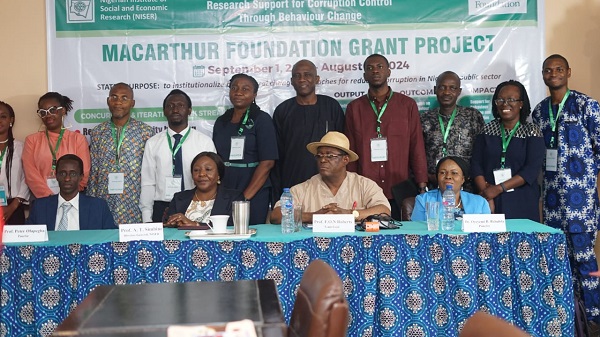
The director-general, Nigerian Institute of Social and Economic Research (NISER), Dr. Antonia Simbine has said the institute is leaning towards behavioural solutions to tackle issues of corruption in the society because traditional approaches, including detection-based technical fixes, investigation, prosecution and sanctions have failed.
She made this assertion during the NISER’s Actualising Behaviour Change (ABC) programme in Ibadan, codenamed ‘ABC Series’ being executed with a support grant from the MacArthur Foundation.
“Our research thus far provides us with some understanding of why traditional approaches to stemming corrupt practices, including detection-based technical fixes, investigation, prosecution and sanctions have recorded little success. We now understand corruption to be a complex-adaptive problem, hence our leaning towards behavioural solutions,” she said.
According to her, the intervention, designed around a three-year cycle running from September 1, 2021, to August 31, 2024, aims “to institutionalise behaviour change approaches for reducing corruption in Nigeria’s public sector” with the context in behavioural solution designed for the Nigerian public service system.
“This is a bureaucratic system that espouses a hybrid form of colonial structures, elements of political offices that service a presidential system of government and yet, components of traditional systems. All of these are interacting with a rapidly changing and globalised world. Consequently, we are dealing with a system that has morphed over time and remains dynamic still. Given the foregoing foundational fault lines, Nigeria’s bureaucracy, its institutions and actors present complex challenges, one of which is corrupt behaviour,” she added.
Simbine further stated that the ‘ABC Series’ is one of the communication and dissemination platforms for research, adding that the target audience for engagement includes a wide range of stakeholders in the public and private sectors, policy makers, decision influencers, civil society organisations, academia and development partners.


